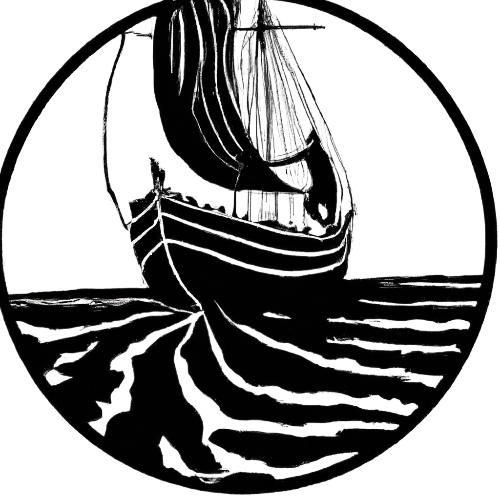Cite Field
In many areas, we are frequently invited to comment on different editions and translations of the same work. In such cases, we refer not only to the authors and dates of the publications, but also to their editors, translators, publishers, and their original titles and editions. But how to do this? If citetools is enabled, then the answer lies in a small variation of Pandoc’s vanilla syntax for citations.
Use [@Citekey]{.csl_field} where .csl_field is the field name prefixed by a dot, to specify the field to print.
Practical example
Here is a printout of different citation fields followed by a concrete example of how to use them in a document.
| Raw | Output |
|---|---|
[@AristOp]{.author} |
Aristotle |
[@AristOp]{.editor} |
Bekker |
[@AristOp]{.title} |
Aristotelis opera |
[@AristOp]{.issued} |
18311 |
[@AristOp]{.publisher} |
Reimer |
[@AristOp]{.publisher-place} |
Berlim |
[@AristOp]{.edition} |
1 |
[@AristOp]{.number-of-volumes} |
4 |
type: book
id: AristOp
author:
- family: Aristotle
editor:
- family: Bekker
given: Immanuel
title: Aristotelis opera
issued:
date-parts:
- 1831
number-of-volumes: '4'
publisher: Reimer
publisher-place: Berlim
edition: '1'Document processing using Quarto and Pandoc is much faster using CSL-YAML/JSON bibliographies than using BibTeX or RIS because Pandoc also uses the Citation Style Language internally (of which CSL-YAML is a representation).
{
"author": [
{
"family": "Aristotle"
}
],
"editor": [
{
"family": "Bekker",
"given": "Immanuel"
}
],
"id": "AristOp",
"issued": {
"date-parts": [
[
1831
]
]
},
"number-of-volumes": "4",
"publisher": "Reimer",
"publisher-place": "Berlim",
"title": "Aristotelis opera",
"type": "book",
"edition": "1"
}@book{AristOp,
author = {Aristotle},
editor = {Bekker, Immanuel},
title = {Aristotelis opera},
publisher = {Reimer},
address = {Berlim},
volumes = {4},
edition = {1},
year = {1831}
}TY - BOOK
ID - AristOp
AU - Aristotle
ED - Bekker, Immanuel
TI - Aristotelis opera
PB - Reimer
CY - Berlim
ET - 1
VL - 4
Y1 - 1831
ER -With this knowledge, we could state the following in our text:
The works of [@AristOp]{.author} were first edited by [@AristOp]{.editor} under the title [@AristOp]{.title} in [@AristOp]{.issued}.
Which would render as:
The works of Aristotle were first edited by Bekker under the title Aristotelis opera in 1831.
Citation Style Language
Did you notice that we used [@AristOp]{.issued} instead of [@AristOp]{.date}[@AristOp]{.publisher-place} instead of [@AristOp]{.city}
Internally, as we said, Pandoc uses the Citation Style Language to handle bibliographies. This is a standard schema for bibliographic data, which is used by some bibliography managers, such as Zotero, and JabRef. Most, however, are closer to the conventions of BibTeX (or RIS) which is why you may not see an exact correspondence between the CSL variables and BibTeX field names.
In CSL, there are the following variables:
abstract accessed annote archive archive_collection archive_location archive-place author authority available-date call-number chair chapter-number citation-key citation-label citation-number collection-editor collection-number collection-title compiler composer container-author container-title container-title-short contributor curator dimensions director division DOI edition editor editor-translator editorial-director event event-date event-place event-title executive-producer first-reference-note-number genre guest host illustrator interviewer ISBN ISSN issue issued jurisdiction keyword language license locator medium narrator note notes number number-of-pages number-of-volumes organizer original-author original-date original-publisher original-publisher-place original-title page page-first part-number part-title performer PMCID PMID printing-number producer publisher publisher-place recipient references reviewed-author reviewed-genre reviewed-title scale script-writer section series-creator source status submitted supplement-number title title-short translator URL version volume volume-title year-suffixHere is a quick reference, not exhaustive by any means, of where will the data end up in the conversion from BibTeX and RIS to CSL. This means that the CSL variables on the first column are the final destination and they receive the content of the second or third-column fields depending on the format it converts from. On the second tab, we map the reference types from BibTeX to the CSL types.
| CSL | BibTeX | RIS |
|---|---|---|
| author | authors | AU |
| editor | editors | ED |
| issued | date | PY |
| title | title | T1 |
| title-short | shorttitle | - |
| container-title | booktitle (inproceedings incollection inbook) | BT |
| container-title | journal (article book proceedings masterthesis lexicon online booklet) | JA |
| collection-title | series | - |
| original-title | origtitle | OR |
| publisher | school, institution, organization, howpublished, publisher | PB |
| publisher-place | address | PP |
| abstract | abstract | AB |
| url | URL | UR |
| keywords | keywords | KW |
| chapter-number | chapter | - |
| issue | issue (article), number (article) | IS |
| number | number (phdthesis) | IS |
| collection-number | number (book) | IS |
| volume | volume | VL |
| number-of-volumes | volumes | NV |
| page | pages | SP |
| edition | edition | ET |
| genre | type | - |
| call-number | library | ID |
| version | version | - |
See also, the full list of CSL variables, BibTeX Fields and RIS Tags.
| CSL | BibTeX |
|---|---|
| article-journal | article |
| book | book |
| pamphlet | booklet |
| chapter | inbook |
| chapter | incollection |
| paper-conference | inproceedings |
| book | manual |
| thesis | mastersthesis |
| thesis | misc |
| thesis | phdthesis |
| book | proceedings |
| report | techreport |
| manuscript | unpublished |
Footnotes
Note that
[-@AristOp]would render as (1831).↩︎
Citation
@online{vasconcelos2023,
author = {Vasconcelos, BCDA},
title = {Cite {Field}},
date = {2023},
url = {https://bcdavasconcelos.github.io/citetools/docs_qmd/03-cite-field.html},
langid = {en}
}
